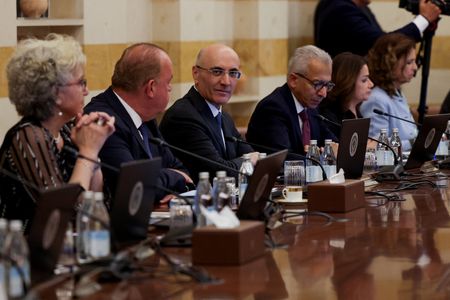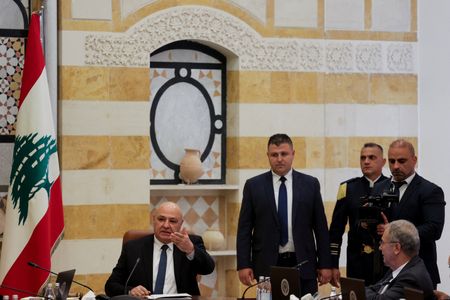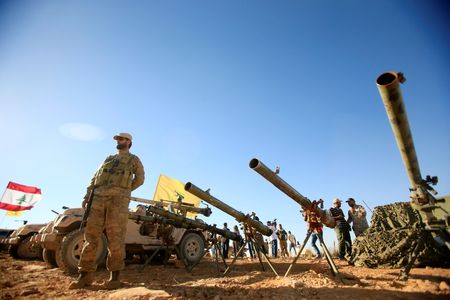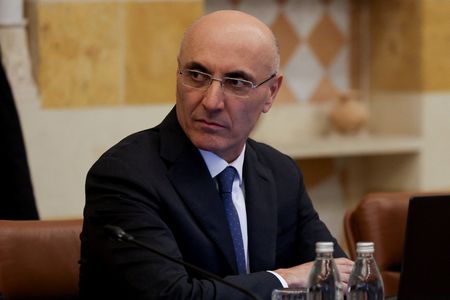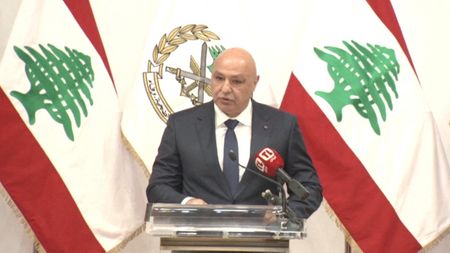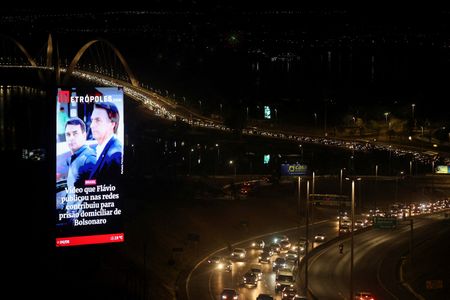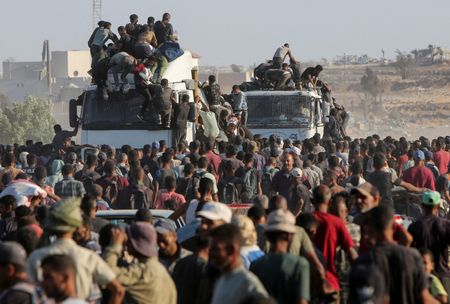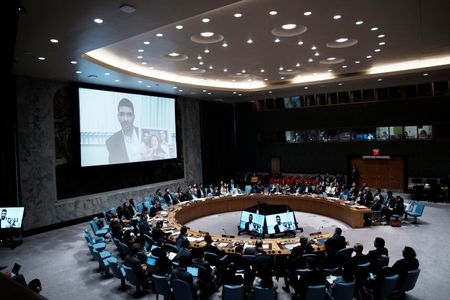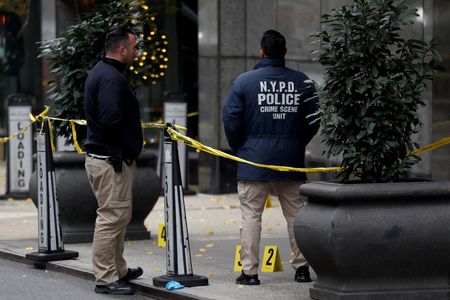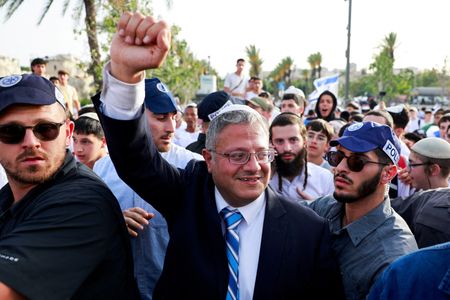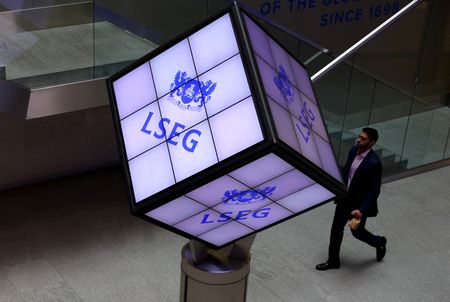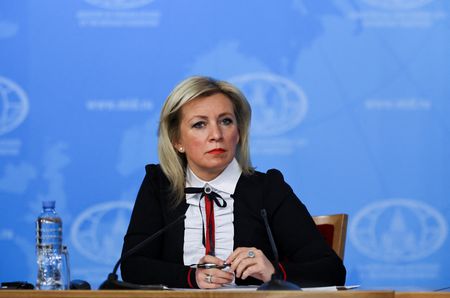By Maya Gebeily and Laila Bassam
BEIRUT (Reuters) -Lebanon’s cabinet on Tuesday tasked the army with drawing up a plan to establish a state monopoly on arms by the end of the year, a challenge to Hezbollah, which has rejected calls to disarm since last year’s devastating war with Israel.
The Iran-backed group is under pressure from its rivals in Lebanon and from Washington, who want Lebanon’s ministers to publicly commit to disarming the party and worry that Israel could intensify strikes on Lebanon if they fail to do so.
The session at Lebanon’s presidential palace was the first time the cabinet addressed Hezbollah’s weapons – unimaginable when the group was at the zenith of its power just two years ago.
Ministers met for nearly six hours. In a concluding statement, Prime Minister Nawaf Salam said the cabinet had authorized Lebanon’s army to develop a plan to ensure that all arms across the country would be confined to six specific state security forces by the end of the year.
But as ministers met, Hezbollah’s leader Naim Qassem resisted calls to disarm in a televised speech, saying: “I hope you (Lebanese officials) don’t waste time on the storms stirred up by external dictates.”
He threatened Hezbollah would respond if Israel resumed a broader war on Lebanon and said any decision on Hezbollah’s arms would have to come through a consensus reached with the group.
“The strategy is not a timetable for disarmament,” Qassem said. “The issue has become simply: give us weapons, but no national security. How is that possible? We do not accept it, because we consider ourselves a fundamental component of Lebanon.”
Two Shi’ite Muslim ministers left the session before the statement was agreed upon in a signal of their disapproval. Two other Shi’ite ministers were not present due to travel.
US PROPOSAL ON AGENDA
Lebanon’s Information Minister Paul Morcos said the army would have until the end of the month to submit its plan. He said the cabinet had discussed U.S. proposals to disarm Hezbollah but had not reached an agreement, and would resume its debate in a session on Thursday.
In June, U.S. envoy Thomas Barrack proposed a roadmap to Lebanese officials to fully disarm Hezbollah, in exchange for Israel halting its strikes on Lebanon and withdrawing its troops from five points they still occupy in southern Lebanon.
That proposal included a condition that Lebanon’s government pass a cabinet decision clearly pledging to disarm Hezbollah.
With little progress on the proposals, Washington’s patience began wearing thin. It pressured Lebanon’s ministers to swiftly make the public pledge so that talks could continue.
But Lebanese officials and diplomats say such an explicit vow could spark communal tensions in Lebanon, where Hezbollah and its arsenal retain significant support among the country’s Shi’ite Muslim community.
Qassem on Tuesday read out parts of Barrack’s proposal in his address, rejecting each clause. As he finished speaking, dozens of motorcycles with men carrying Hezbollah flags set out from one of the group’s strongholds in Beirut’s suburbs for the second time in two days.
Hezbollah’s main ally, Lebanese Parliament Speaker Nabih Berri, was in talks with President Joseph Aoun and the prime minister, Salam, ahead of Tuesday’s session to agree on a general phrase to include in a cabinet decision to appease the U.S. and buy Lebanon more time, two Lebanese officials said.
Berri’s proposed wording would commit Lebanon to forming a national defence strategy and maintaining a ceasefire with Israel, but would avoid an explicit pledge to disarm Hezbollah across Lebanon, the officials said.
But other Lebanese ministers plan to propose a formulation that commits Lebanon to a deadline to disarm Hezbollah, said Kamal Shehadi, a minister affiliated with the anti-Hezbollah Lebanese Forces Party.
“There’s frankly no need to kick the can down the road and postpone a decision. We have to put Lebanon’s interest first and take a decision today,” Shehadi told Reuters.
Lebanese officials and foreign envoys say Lebanese leaders fear that a failure to issue a clear decision on Tuesday could prompt Israel to escalate its strikes, including on Beirut.
A U.S.-brokered ceasefire last November ended the conflict between Hezbollah and Israel, though Israel has continued to carry out strikes on what it says are Hezbollah arms depots and fighters, mostly in southern Lebanon.
(Reporting by Maya Gebeily and Laila Bassam; Editing by Alison Williams, Rod Nickel)

